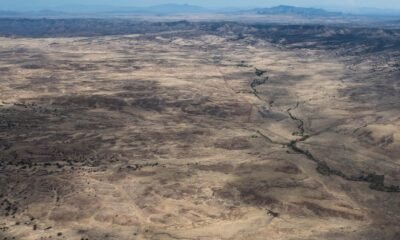budget
Appropriations Chair Declares Hobbs’ Voucher Proposal DOA

In a critical session on Arizona’s budget, Rep. David Livingston, a key Republican figure, declared Governor Katie Hobbs’ proposal to cut $150 million from the state’s universal private school voucher law as unviable. Livingston, who chairs the House Appropriations Committee, firmly stated that the Republican-controlled legislature would not accept Hobbs’ plan to limit access to Empowerment Scholarship Accounts for families earning $200,000 or more.
During the joint hearing involving both appropriations committees, Marge Zylla, the governor’s legislative and fiscal affairs director, faced scrutiny over the $17.7 billion spending proposal. GOP lawmakers expressed frustration over the specific omissions in the plan, particularly regarding expected growth in Medicaid expenditures, known as AHCCCS. They highlighted a notable gap of $846 million that was absent from the budget outline.
Rep. Matt Gress, R-Phoenix, voiced his disbelief at the omission, emphasizing the importance of accounting for all projected expenses over the three-year budgeting window. He critiqued the governor’s failure to include anticipated costs in a plan that is supposed to cover the upcoming budget year and subsequent cycles.
The session also uncovered diverging priorities, with some Republicans questioning the rationale behind allocating $20.7 million to a victim fund facing significant federal cuts, instead of addressing drug smuggling issues at the border. While Democrats pointed out that the funding supports crime victims broadly, the debate underscored differing approaches to state spending priorities.
Livingston’s objections regarding the school voucher program highlighted a persistent issue since Hobbs took office. This marks her third consecutive year attempting to curb voucher expenditures, following earlier efforts that failed to gain traction. Her current strategy involves tying financial aid to family income, aiming to reduce voucher spending, which she estimates would soon approach $1 billion annually.
If approved, Hobbs’ plan would cut spending by $150 million, affecting approximately 21,000 children who rely on these vouchers. The proposed changes are part of Hobbs’ broader strategy to redirect funds toward childcare support and initiatives to alleviate Arizona’s housing shortage.
Livingston made it clear that any attempts to modify the voucher program met with strong opposition, stating, “We are not going to sacrifice 21,000 students… to gain $150 million to spend in other revenue.” He expressed doubt regarding the feasibility of reaching an early budget agreement, emphasizing the significant gap between the executive branch’s proposals and legislative expectations.
As the budget discussions continue, it remains uncertain how the state will navigate these contentious issues in the coming months.

















